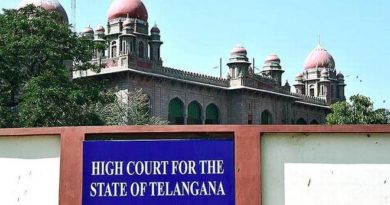Plea In Apex Court Against Section 8 (3) Of Representation of People’s Act Under Which Rahul Gandhi Has Been Disqualified
(Judicial Quest News Network)
A plea has been filed before Apex Court challenging the constitutional validity of Section 8 (3) of the Representation of the People Act, 1951.
The plea is filed a day after Congress leader Rahul Gandhi was disqualified as a Lok Sabha MP following his conviction in a 2019 defamation case.
It is filed by a Ph.D. Scholar and social activist Abha Muralidharan said that Section 8 (3), is ultra vires of the Constitution since it curtails free speech of an elected Member of Parliament (MP) or member of Legislative Assembly (MLA) and restrains law makers from freely discharging their duties cast upon them by the voters of respective constituency.
The Plea filed through advocate Deepak Prakash and drawn by advocate Sriram Parakkat said that is in stark contradiction to subsection (1) of the Section 8, Section 8A, 9, 9A, 10 and 10A and 11 of the 1951 Act, thereby restrains the members from freely discharging their duties casted upon them by the voters of their respective constituency, which is against the principles of democracy.
That the specific pleading of the Petitioner is that the factors, such as nature, gravity, role, moral turpitude and the role of the accused, ought to be examined while considering disqualification under Chapter III of the 1951 Act. That S. 8(3) of the 1951 Act, reads as under: “(3) A person convicted of any offence and sentenced to imprisonment for not less than two years [other than any offence referred to in sub-section (1) or sub-section (2)] shall be disqualified from the date of such conviction and shall continue to be disqualified for a further period of six years since his release.]”
The plea further contended that Lily Thomas judgement of the Supreme Court struck down Section 8 (4) of the Act is being misused.
Further, the operations of Lily Thomas (supra) are being blatantly misused for wreaking personal vengeance in political parties.
That the present scenario provides a blanket disqualification, irrespective of the nature, gravity, and seriousness of the offences, allegedly against the concerned Member, and provides for an “automatic” disqualification, which is against the principles of Natural Justices, since various convictions are reversed at the appellate stage, and under such circumstances, the valuable time of a member, who is discharging his duties towards the public at large, shall be rendered futile,” the petition stated.
That S. 8(3) of the 1951 Act, reads as under:
“(3) A person convicted of any offence and sentenced to imprisonment for not less than two years [other than any offence referred to in sub-section (1) or sub-section (2)] shall be disqualified from the date of such conviction and shall continue to be disqualified for a further period of six years since his release.]”
The plea has also highlighted that sub clause (1) osf section 8 of the Act 1951 Act clearly categorizes the offences, keeping in view the nature offences, for disqualification of MPs.
However, sub-clause of the same section provides for a blanket automatic disqualification, on the basis of the quantum of sentencing and imprisonment, which is self-contradictory and creates ambiguity as to the proper procedure for disqualification, the petitioner contended.
Moreover, the 1951 Act further categorizes the nature of cases wherein disqualification is permissible as enumerated u/s 8A, 9, 9A, 10 and 10A, which again specify the nature of the offences, for disqualifying a member and is in contradiction with sub-clause (3) of Section 8 of the 1951 Act. the plea said .




